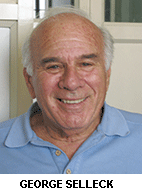“With the arts made marginal to culture as a whole and with religion in relative decline, especially in its communal ritual elements, we are left with sports as a last resort” — Thomas Moore, The Re-Enchantment of Everyday Life (1996)
 I am indebted to my college teammate, friend and collaborator, Dr. David Epperson, for the title of this article and much of the originality of thought that follows. The title, Sports For Us, is a way of underscoring the sense of connection and responsibility that members of sports communities can develop inter se. The title, also, represents an opportunity to challenge the sports-for-the-next-level culture that has become the foundation of contemporary market-driven sports systems.
I am indebted to my college teammate, friend and collaborator, Dr. David Epperson, for the title of this article and much of the originality of thought that follows. The title, Sports For Us, is a way of underscoring the sense of connection and responsibility that members of sports communities can develop inter se. The title, also, represents an opportunity to challenge the sports-for-the-next-level culture that has become the foundation of contemporary market-driven sports systems.
The mission of this article is to raise the awareness of families and school administrators about how much more youth sports can do for them and their communities, and to encourage citizens to consider options for transforming a monolithic youth sports system (such as we have in the US) shaped by the needs of college, Olympic and professional sports organisations, into a pluralistic system that offers inclusive, collaborative, connective and expansive options.
The stated purposes of elite sports organisations are to entertain spectators to generate income for their stakeholders, owners, coaches and athletes. Entertainment sports are undeniably driven by market considerations. On the other hand, youth sports clubs provide opportunities for young people to enhance their sports skills in environments which provide experiences to develop life skills and personal characteristics that will prepare them for success in life.
Sports For Us is an option for those who recognise that participation in the current market-driven system is undesirable for families and schools. It’s an option for people who believe the dominant market-driven youth sports culture isn’t allowing all children to realise their full potential through sports education.
As we have worked with parents to help them support their children’s participation in sports, we have identified attitudes, habits and skills that will equip them to play in ways that minimise potential damage and improve the quality of lives of their families. The ideas and insights we have acquired recommend an approach to sports that is significantly different from mainstream sports culture, and are offered hereunder.
Sports educate sportspersons and their families. My journey through life has been substantially shaped by my sports education. I believe families, athletes and sportspersons can benefit from the challenges and setbacks inevitable in sports and games.
One can discover oneself through sports. The climate of sports needs to be changed so it nurtures us. I believe sports strengthens relationships. Thus, the focus of our critique of sports for youth is on building relationships. We aspire to strengthen bonds between parents, athletes and coaches by endowing sports education with new meaning.
Sports should encourage collaboration and minimise confrontation. From my freshman year at Stanford until today when I spend most of my waking hours designing, developing and implementing my private, non-profit initiative Leading2Play, I have been attempting to connect sports education with families and communities so everyone can find a way to satisfy their needs and interests. As I have gotten more invested in sports for young people, I have been asking basic questions such as: What are our responsibilities to children, their teammates and coaches, and to other parents? The result is a focus on interpersonal responsibility in the parent-athlete-coach relationship.
Inspire other parents to higher levels of development. One of the most important lessons sports parents can learn is how they can make an impact on school and youth sports. Erick Erickson’s model of human development advances the notion that during the final stages in a fully actualized person’s life, they pass through what he calls the “generativity” stage of development where they feel a sense of urgency to leave their mark on the world. It is my conclusion that if we intend to transform the culture of sports we need to move a large number of sports parents to a higher level of development, so they take initiatives to make sports a better experience for their children and other young sportspersons.
Develop new ways of viewing sport. I firmly believe there are enough thoughtful parents, coaches and administrators who have had their fill of commerce-driven insanity we too often observe on playing fields, the sidelines and in the bleachers, and would prefer to develop an alternative approach to sports and sportsmanship.
Where can these musings about the promise of balanced sports education lead us? My hope is that it will encourage parents to take advantage of opportunities sports provide for the “ritual contemplation” we all need, but neither the arts nor religion provides. All of us need to reflect on how we can best invest our time and energy in developing holistically educated children who can lead healthy, happy lives.
(Dr. George Selleck is a San Francisco-based advisor to EduSports, Bangalore)